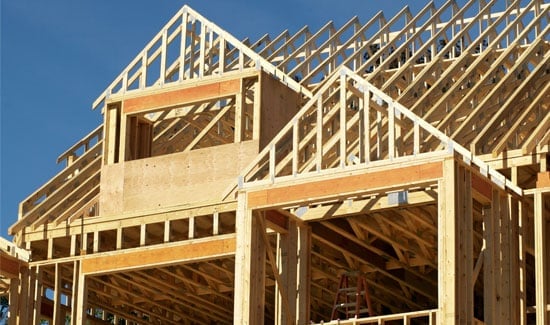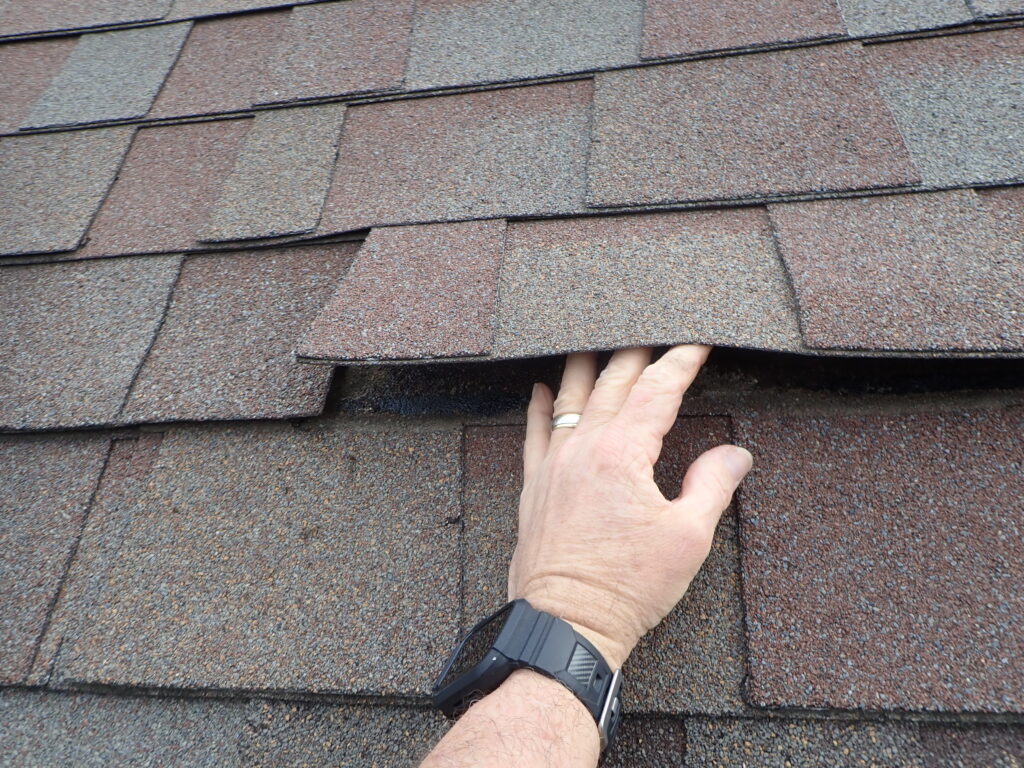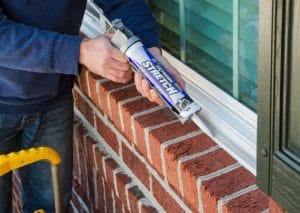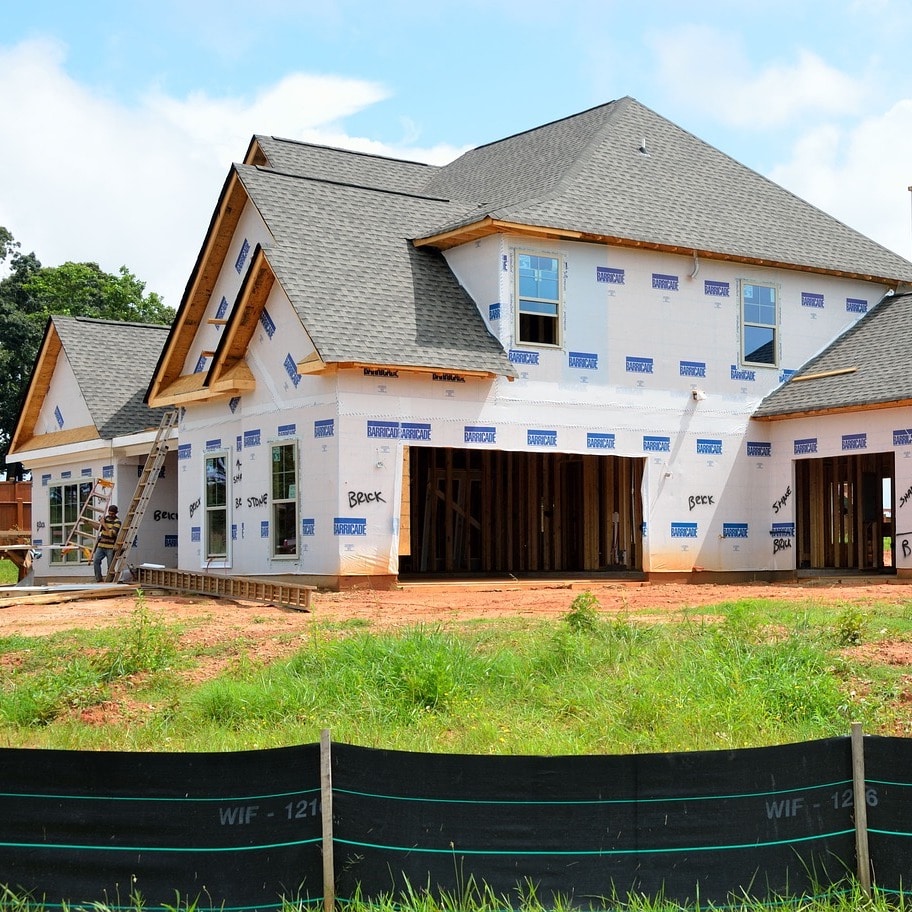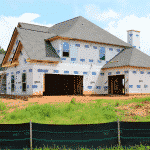The question “Should I inspect my newly built home?” is easily answered: Yes, you should have an inspection before closing the deal. Here’s why:
Varied Skill Levels Among Workers
During construction, anywhere from 60 to 100 professionals may enter the home to perform various tasks. These workers range from highly skilled to, at times, unskilled day laborers. Even licensed HVAC technicians or electrical apprentices working under a master electrician can make mistakes. Such errors are often missed during routine supervision.
The process of building a new home involves a multitude of tasks that require the coordination and effort of numerous professionals. From the groundbreaking to the final touch-ups, your home will have been visited by a diverse workforce that spans a spectrum of expertise and experience. Here’s why understanding the varied skill levels among these workers is crucial when inspecting your newly built home.
- The Diverse Workforce: During the construction phase, your home will have seen anywhere from 60 to 100 individuals with different specializations and qualifications. These professionals include carpenters, plumbers, electricians, HVAC technicians, painters, roofers, and many more. While some of them are highly skilled and experienced, others may be temporary day laborers or apprentices who are still learning their trade. This mix of expertise levels can result in a wide range of work quality.
- Potential for Mistakes: Even highly skilled workers can make mistakes, and this is a reality in any construction project. An experienced electrician might overlook a small wiring error, or a master plumber may not notice a minor plumbing issue. Mistakes can be due to human error, miscommunication, or simply the complexity of the job. These errors are not always immediately apparent, and they may go unnoticed during routine supervision.
- Importance of Inspection: This is where the importance of a thorough inspection comes into play. While routine supervision and quality control measures are in place on construction sites, they may not catch every mistake or issue. Inspecting your newly built home is your opportunity to ensure that every aspect of the construction meets your standards and expectations.
- Detecting Hidden Issues: Some mistakes or subpar work may not manifest immediately but could become problematic in the long run. For example, a minor plumbing leak that goes unnoticed during construction can lead to mold or structural damage over time. An electrical wiring error could pose safety hazards later on. By conducting a comprehensive inspection, you can identify and address these hidden issues before they escalate.
- Peace of Mind: Knowing the varied skill levels among workers during construction, your inspection provides peace of mind. It’s not about doubting the competence of the professionals involved but rather about taking a proactive approach to ensure that your investment in a new home is of the highest quality possible.
Recognizing the diverse workforce and varied skill levels among workers during the construction of your new home underscores the importance of a thorough inspection. It’s a critical step in the process to ensure that your home is not only beautiful but also safe and built to last for years to come. Your new home is a significant investment, and by carefully examining every aspect, you can be confident that it meets your standards and expectations.
Risk of Roofing Defects
The home’s roof is particularly susceptible to defects, as it’s the primary barrier against weather elements. Almost all newly constructed roofs will have imperfections, leading to potential leaks and damage. It also plays a vital role in protecting you and your property from the elements. It’s the first line of defense against rain, snow, wind, and harsh sunlight. However, it’s crucial to understand that even in new construction, roofing defects can occur. Here’s why roofing inspections are a crucial part of ensuring the long-term durability and safety of your newly built home.
- The Vulnerability of Roofs: Roofs are constantly exposed to harsh environmental conditions. From scorching summer heat to freezing winter cold, and from heavy rain to strong winds, your roof must endure it all. This continuous exposure makes roofing systems vulnerable to wear and tear, and even small imperfections can lead to significant issues over time.
- Imperfections in New Roofs: Contrary to common belief, almost all newly constructed roofs will have some imperfections. These imperfections can be the result of various factors, including the complexity of the roofing process, variations in materials, and human error during installation. While most of these imperfections may seem minor initially, they can escalate into more significant problems if left unaddressed.
- Potential Consequences: Roofing defects can lead to several serious consequences if not identified and rectified promptly:
- Leakage: Even a small imperfection in the roofing structure can eventually lead to leaks. Water infiltration can cause damage to your home’s interior, including ceilings, walls, insulation, and electrical systems. It can also promote mold growth, which poses health risks.
- Energy Efficiency: Roofing defects can compromise the energy efficiency of your home. Gaps or improperly sealed areas can result in heat loss during winter and heat gain during summer, leading to higher energy bills.
- Structural Damage: In severe cases, roofing defects can affect the structural integrity of your home. Water damage can weaken roof trusses and support beams, potentially leading to costly repairs.
- The Importance of Inspection: Given the potential consequences of roofing defects, inspecting your new home’s roof is a prudent and necessary step. A comprehensive roof inspection should cover:
- Visual Examination: Inspectors will visually assess the roof’s surface, looking for any visible signs of damage, such as missing or damaged shingles, cracked flashings, or sagging areas.
- Waterproofing and Sealing: Ensuring that all critical areas, such as valleys, vents, and flashing, are properly sealed and waterproofed.
- Gutter and Drainage Inspection: Assessing the functionality of gutters and drainage systems to prevent water buildup.
- Long-Term Benefits: By investing in a roof inspection for your newly built home, you’re taking a proactive approach to identify and address any roofing defects early on. This not only helps protect your investment but also ensures the safety and comfort of your family. Addressing minor issues promptly can save you from costly repairs down the road and help maintain your home’s energy efficiency and structural integrity.
The risk of roofing defects in newly built homes is a reality, and it underscores the importance of thorough roof inspections. Your roof is the primary shield against the elements, and by addressing any imperfections early on, you can enjoy a comfortable, safe, and energy-efficient home for years to come.
Inconsistent Supervision
Two types of site superintendents generally oversee construction. The first may drive by to check contractor presence but never assess the work quality. The second type actively supervises and reviews the completed work. Unfortunately, the first type is more common.
Building a new home is an exciting and significant investment, but it’s not without its challenges. One such challenge is the level of supervision and quality control during the construction phase. In many cases, there are two types of site superintendents overseeing the process, and understanding their roles is crucial. Here’s why hiring a home inspector is vital to ensure your newly built home meets the quality standards you expect.
1. The Two Types of Site Superintendents:
During the construction of your new home, it’s common for two types of site superintendents to play different roles in the supervision process:
- Type 1: Minimal Oversight: The first type of site superintendent may have a hands-off approach. They may check in periodically to ensure contractor presence and adherence to schedules but may not actively assess the quality of work. Their focus is often on project management and logistics, rather than the fine details of construction.
- Type 2: Active Supervision: The second type of site superintendent is more actively involved in overseeing the construction process. They pay attention to work quality, review completed tasks, and ensure that the project meets quality standards and specifications. Their goal is to maintain a high level of craftsmanship throughout the project.
2. Prevalence of the First Type:
Unfortunately, the first type of site superintendent, who provides minimal oversight when it comes to work quality, is more common in the construction industry. This can be due to various factors, including workload, time constraints, and budget considerations. As a result, there is often a greater reliance on contractors and subcontractors to maintain quality standards.
3. The Role of Home Inspectors:
This is where hiring a home inspector becomes essential. A home inspector acts as an impartial third party with expertise in assessing the quality and safety of residential construction. They bring several benefits to the table:
- Objective Evaluation: Home inspectors provide an unbiased evaluation of the construction, focusing on workmanship, materials, and adherence to building codes and standards.
- Comprehensive Inspection: Home inspectors thoroughly examine all aspects of your newly built home, from the foundation to the roof, ensuring that no detail is overlooked.
- Early Issue Detection: By identifying potential problems or defects early on, home inspectors help prevent costly repairs or renovations down the road.
- Peace of Mind: Home inspections provide homeowners with confidence in the quality and safety of their investment, knowing that an expert has thoroughly reviewed the property.
4. Ensuring Quality and Safety:
Inconsistent supervision during the construction process can lead to work quality variations, potential defects, and safety concerns. By hiring a home inspector to assess your newly built home, you take a proactive step to ensure that it meets the highest quality standards and is a safe and comfortable place for you and your family.
The presence of two types of site superintendents with varying levels of oversight during the construction of your new home highlights the importance of hiring a home inspector. Their objective evaluation and comprehensive inspection can provide you with peace of mind, knowing that your investment is built to last and meets the quality standards you expect. It’s a wise investment that can help you avoid future headaches and ensure your new home is truly your dream home.
High Turnover and Inexperienced Staff
Superintendents and other professionals may change during construction, affecting the work’s consistency. Additionally, builders often resort to hiring less experienced staff due to a shortage of qualified professionals.
Building a new home is a significant endeavor, and it involves various professionals working together to turn your dream into reality. However, the construction industry is not immune to challenges, and two common issues are high turnover and a shortage of experienced staff. Here’s why these challenges emphasize the importance of hiring a home inspector to ensure your newly constructed home meets your expectations:
1. High Turnover in Construction:
Construction projects, even those for new homes, often experience a level of staff turnover. This means that the individuals overseeing different aspects of the project, such as site superintendents, project managers, and even tradespeople, may change during the course of construction. This can lead to several challenges:
- Inconsistent Communication: Changes in personnel can result in inconsistent communication between team members. Information may be lost or misunderstood during the transition, which can affect the project’s overall quality.
- Varying Work Standards: Each professional may have their own standards and approaches to construction. When staff turnover is high, it can lead to variations in work quality and practices, impacting the final product.
- Quality Control Issues: Maintaining consistent quality control becomes more challenging when there’s frequent turnover, as new staff may not be as familiar with the project’s specifics or the builder’s quality standards.
2. Shortage of Qualified Professionals:
Another common challenge in the construction industry is the shortage of experienced and qualified professionals. This shortage can lead builders to hire less experienced staff to meet project demands. Here’s why this shortage is a concern:
- Lack of Expertise: Inexperienced staff may not have the same level of expertise and craftsmanship as their more seasoned counterparts, which can result in subpar work.
- Increased Risk of Mistakes: With less experience, there is a higher likelihood of mistakes or oversights during construction. These mistakes can range from minor cosmetic issues to more significant structural problems.
- Impact on Timelines: Inexperienced staff may take longer to complete tasks or may require more oversight, potentially leading to delays in the construction schedule.
3. The Role of Home Inspectors:
In light of these challenges, hiring a home inspector becomes a strategic decision to ensure the quality and safety of your newly built home. Here’s how home inspectors can help mitigate the impact of high turnover and inexperienced staff:
- Independent Assessment: Home inspectors offer an impartial and independent assessment of the construction, focusing on quality, safety, and adherence to building codes and standards.
- Experienced Perspective: Inspectors bring a wealth of experience and expertise to the table, helping identify issues that might be missed by less experienced construction personnel.
- Early Issue Detection: By catching problems early in the construction process, home inspectors can help prevent costly repairs or renovations after you’ve moved in.
4. Peace of Mind and Investment Protection:
The challenges of high turnover and a shortage of experienced staff in the construction industry highlight the importance of hiring a home inspector for your newly built home. By doing so, you are taking proactive steps to ensure that your investment is protected, your home meets your expectations, and it’s a safe and comfortable place for you and your family.
In a complex industry with changing personnel and skill levels, a home inspector serves as a reliable and knowledgeable advocate, providing peace of mind and assurance that your new home is built to the highest standards of quality and safety.
Misleading Sales Tactics
Sales representatives may claim that a warranty will cover future issues, implying that an inspection is unnecessary. This is misleading at best and dishonest at worst. Warranty claims can be time-consuming stressful, and may not cover every problem.
When you’re in the process of purchasing a newly built home, it’s not uncommon to encounter sales representatives who assure you that a warranty will provide all the protection you need for any future issues. While warranties are undoubtedly valuable, it’s crucial to recognize that they may not cover every problem, and their claims process can be far from straightforward. Here’s why relying solely on warranties can be a risky move and why a professional home inspection is an essential step in safeguarding your investment.
1. Misleading Sales Tactics:
Sales representatives have a vested interest in closing deals, and in some cases, they may employ tactics that downplay the necessity of a home inspection. They might make statements like “Our warranty has you covered” or “You don’t need an inspection; everything is brand new.” While these statements are not inherently false, they can be misleading because they overlook important nuances.
2. The Limitations of Warranties:
It’s crucial to understand that even the most comprehensive warranties have limitations. These limitations can include:
- Time Constraints: Warranties typically have specific timeframes during which you can make claims. If an issue arises after this period, you may be left to cover the cost of repairs yourself.
- Exclusions: Warranties often come with exclusions that specify what they do not cover. These exclusions can range from cosmetic issues to problems caused by homeowner neglect.
- Complex Claims Process: Filing a warranty claim can be a time-consuming and stressful process. You’ll need to document the issue, follow the warranty provider’s procedures, and potentially deal with disputes.
- Incomplete Coverage: While warranties may cover structural defects or major systems, they might not address all the potential issues that can arise in a home.
3. The Role of Home Inspections:
In this context, a professional home inspection serves as a crucial safeguard for your investment. Here’s how home inspections can complement warranties:
- Independent Evaluation: Home inspectors provide an impartial, independent evaluation of your home’s condition, identifying potential issues that might not be covered by a warranty.
- Thorough Assessment: Home inspections cover all aspects of your home, from the foundation to the roof. This comprehensive assessment can uncover hidden problems that may not be immediately evident.
- Early Issue Detection: By identifying issues early, home inspections can prevent them from escalating into more significant and costly problems down the line.
- Peace of Mind: A home inspection provides peace of mind, knowing that your new home has been thoroughly reviewed by an expert and is safe and sound for you and your family.
4. Making Informed Decisions:
While warranties are a valuable aspect of new home purchases, they should not be relied upon exclusively. Misleading sales tactics that suggest you don’t need a home inspection can potentially lead to costly surprises down the road. A professional home inspection empowers you to make informed decisions about your investment, ensuring that your newly built home is not only backed by a warranty but also thoroughly assessed for any potential issues. It’s a proactive step that can save you time, money, and stress in the long run, providing you with confidence in your new home.
Example of a newly built home that is missing insulation.
Real-world Examples
Don’t just take my word for it. You can confirm these concerns by speaking to neighbors or researching online. Below is a list of common issues discovered by or reported to home inspectors:
- Electrical panel caught fire due to improper HVAC installation.
- Slow leakage from a second-floor shower, causing extensive damage.
- Missing roof flashing, leading to a hidden closet leak.
- High electrical bill due to 40% missing insulation, as revealed by a thermal camera.
- Oven glass exploding during cooking.
- Insufficient air supply in a bedroom.
- Improper front yard grading leading to flooding.
- Missing or improperly installed felt on the roof.
- Faulty installation of shingles.
- Loose or wind-blown shingles.
- Missing or improperly installed flashing.
- Wall vent covers not properly affixed.
- Poor water flow affecting fixtures.
- Inadequate insulation.
- Legal action against a builder for a failed foundation.
- Mold in a garage due to missing cap flashing.
Given the multitude of potential issues, having a new home inspected is imperative before finalizing your purchase.
Why Stonebriar Property Inspections is the Key to Your Peace of Mind in New Home Purchases
Buying a new home is an exciting journey, filled with anticipation and dreams of creating a comfortable and secure space for you and your family. However, amidst the excitement, it’s crucial to recognize that even newly built homes can have hidden issues that may not be immediately apparent. This is where Stonebriar Property Inspections plays a pivotal role in ensuring your investment is a wise and informed one. Here’s why their expertise is imperative before finalizing your purchase:
1. The Multitude of Potential Issues:
A newly built home may seem perfect at first glance, but beneath the surface, a multitude of potential issues can lurk. These issues can vary from minor cosmetic imperfections to more significant structural problems. Some common concerns in newly built homes include:
- Construction Defects: Mistakes made during the construction process can lead to structural defects, electrical and plumbing issues, or poor insulation.
- Incomplete Work: Contractors may leave behind incomplete work or not address all the items on the project plan.
- Code Compliance: Ensuring that the home adheres to local building codes and safety standards is vital for your safety and peace of mind.
- Quality Control: Maintaining consistent quality control can be a challenge during large-scale construction projects, and deviations in workmanship may go unnoticed.
2. The Role of Stonebriar Property Inspections:
Stonebriar Property Inspections specializes in meticulously assessing all aspects of your newly built home. Their role goes beyond a cursory examination; it involves:
- Comprehensive Assessment: Stonebriar Property Inspections conducts a thorough evaluation of your home, from the foundation to the roof, leaving no stone unturned. Our expertise ensures that no potential issues are overlooked.
- Experience and Expertise: We bring a wealth of experience and expertise to the table, allowing us to identify issues that may be missed by others. We are well-versed in local building codes and standards, ensuring your home is compliant.
- Impartial Evaluation: Stonebriar Property Inspections provides an impartial and unbiased evaluation, giving you an accurate picture of your home’s condition without any vested interests.
- Early Issue Detection: By identifying issues early, their inspections can help prevent these problems from escalating into costly repairs or renovations after you’ve moved in.
3. The Imperative Nature of the Inspection:
Given the multitude of potential issues in even newly built homes, having a Stonebriar Property Inspections assessment is imperative. It’s a proactive step that ensures:
- Investment Protection: Your investment is protected from unexpected repairs and costs that may arise post-purchase.
- Peace of Mind: You can have peace of mind knowing that your new home has been thoroughly inspected by a professional with your best interests in mind.
- Informed Decision-Making: Armed with our assessment, you can make informed decisions about your purchase, potentially negotiate repairs with the builder, or even opt for another property if significant issues are uncovered.
Purchasing a new home is a significant investment, and having Stonebriar Property Inspections inspect your newly built home is not just recommended but imperative. Our expertise, comprehensive assessments, and commitment to your best interests ensure that you are well-informed and protected in your real estate journey. It’s a crucial step that guarantees your peace of mind and the security of your investment, allowing you to embark on your homeownership journey with confidence and excitement.

